Addressing Food Security with Digital Public Infrastructure
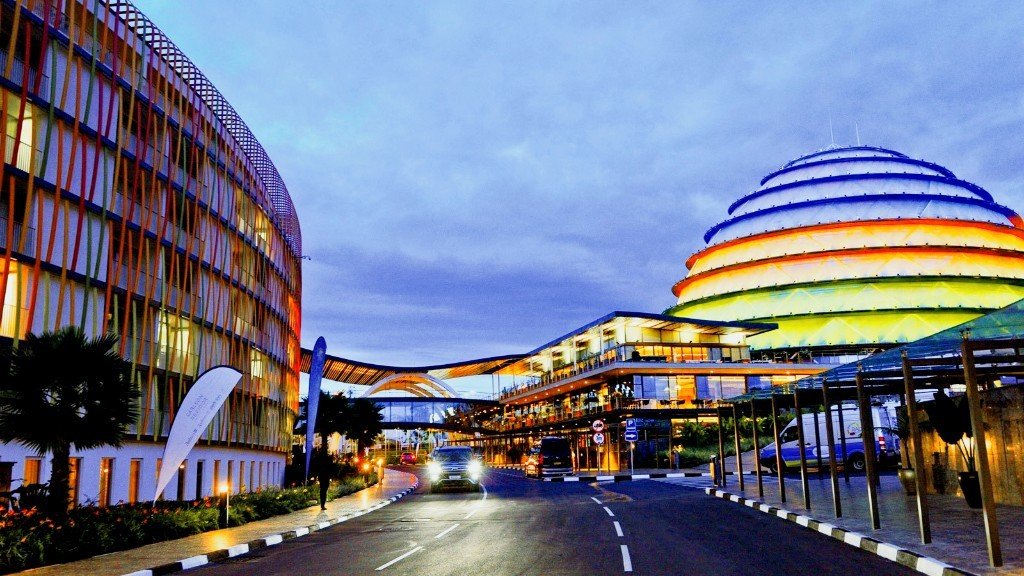
Co-Develop & AFR supporting RISA for the advancement of Rwanda’s Digital Public Infrastructure (DPI) journey.
Rwanda continues to make strides in its digital transformation journey, harnessing innovative solutions to enhance service delivery and economic growth. The country has demonstrated a strong commitment to foundational Digital Public Infrastructure (DPI), from Irembo—a platform streamlining access to government services—to the widespread adoption of mobile money and digital solutions in finance, agriculture, and healthcare.
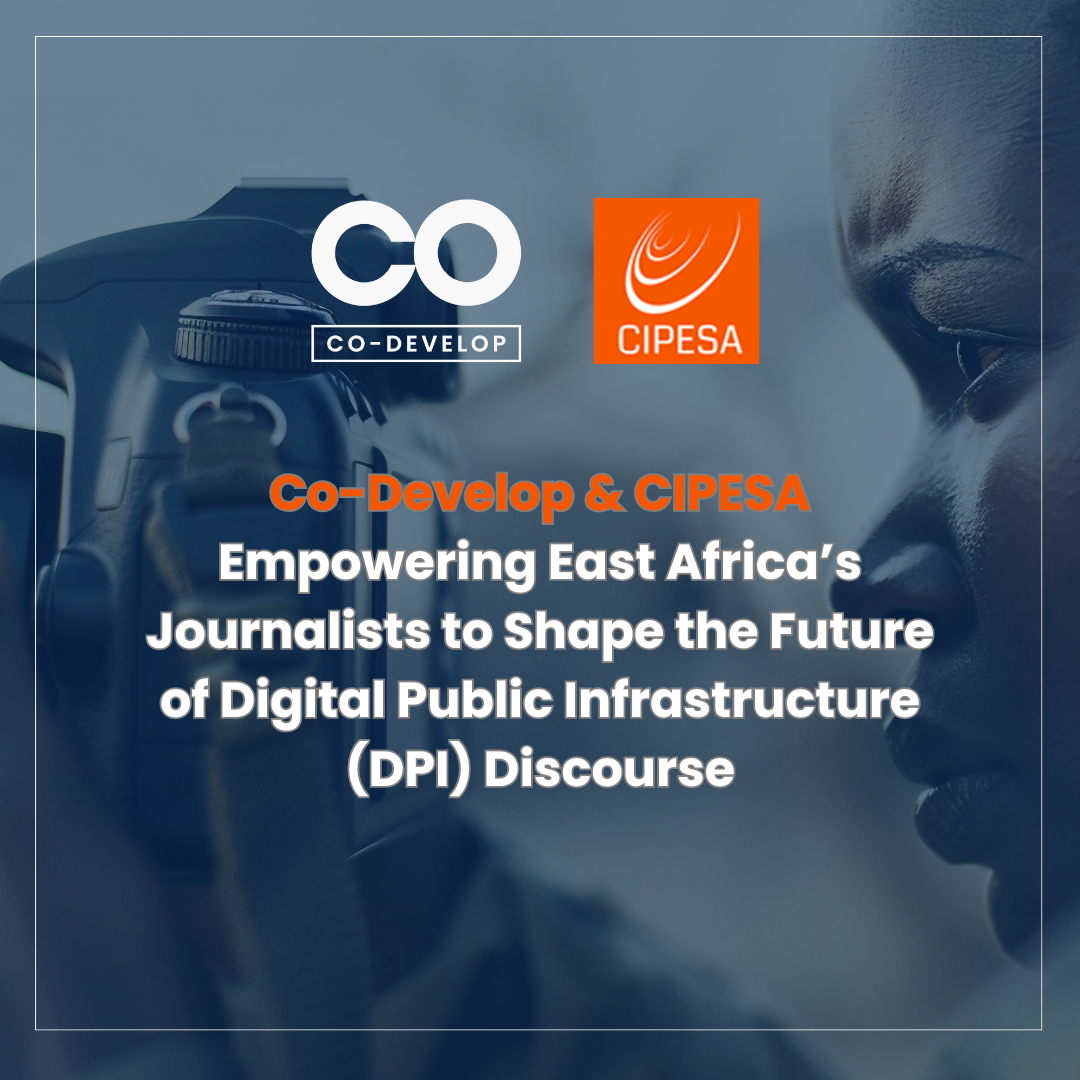
Co-Develop & CIPESA Empowering East Africa’s Journalists to Shape the Future of Digital Public Infrastructure Discourse
What if the future of digital public infrastructure (DPI) was shaped not just by policymakers and technologists, but by the stories that journalists tell? At Co-Develop, we believe that the stories told about DPI can drive awareness, accountability, and action. This is why Co-Develop is pleased to announce a new partnership with the Collaboration on International ICT Policy for East and Southern Africa (CIPESA) to launch a DPI Journalism Fellowship in Eastern Africa.

The $800 billion Gorilla
We have heard of the American expression of the 800-pound gorilla… but this note is about the $800 billion dollar gorilla that we will need to contend with and tame.
Gartner Research estimates that governments around the world will spend over $800 billion on technology in 2024. A closer look reveals that 88% of this amount will be spent by “mature economies”, with approximately 2.5 billion people.
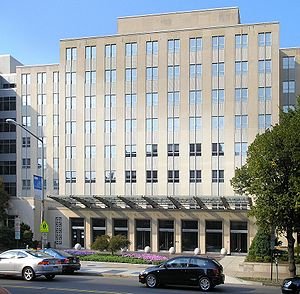
The Brookings Institution Joins the DPI Conversation
Digital public infrastructure (DPI) may be a relatively new term, but the work of digital transformation to catalyze efficiencies in the delivery of public and private services has been ongoing for decades. Only recently have actors including the United Nations and the World Bank converged on highlighting the importance of taking an infrastructure approach to digital transformation, supporting the development of cross-sectoral technologies that deliver impact at national scale.

From Government Solutions to Societal Capabilities
As the DPI debate has evolved over the past couple of years, there continues to be a lack of clarity on what DPI is. There have been several attempts at coming up with a “definition” by various stakeholders, but there is no consensus. The framing of ‘shared means to many ends’ that David Eaves and Jordan Sandman articulated about a year ago seems to capture the essence of what infrastructure generally is – digital or physical.

Oxford Dives into Studying Digital Public Infrastructure
Many development experts and technologists have discussed the huge potential impact of digital public infrastructure (DPI). For example, reports have projected that DPI could drive GDP growth by as much as 3-13%. But it's not enough to project impact. As these systems roll out on the ground, the DPI ecosystem needs a systematic approach to measuring their economic and social impact. That's why Co-Develop funded the creation of Oxford's Digital Public Infrastructure Research Lab (OxDPI). The lab will investigate the impacts of Digital Public Infrastructure (DPI) on inclusion and wellbeing in low- and middle-income countries.

Global Development Network Launches Program to Support Local Researchers Studying Digital Public Infrastructure
Researchers studying digital transformation and its ability to streamline access to public and private services have been able to demonstrate its substantial potential for positive human and economic impact. Building a research base is important to help policymakers understand the value of investing in digital transformation as well as the potential opportunities and pitfalls of various design approaches.
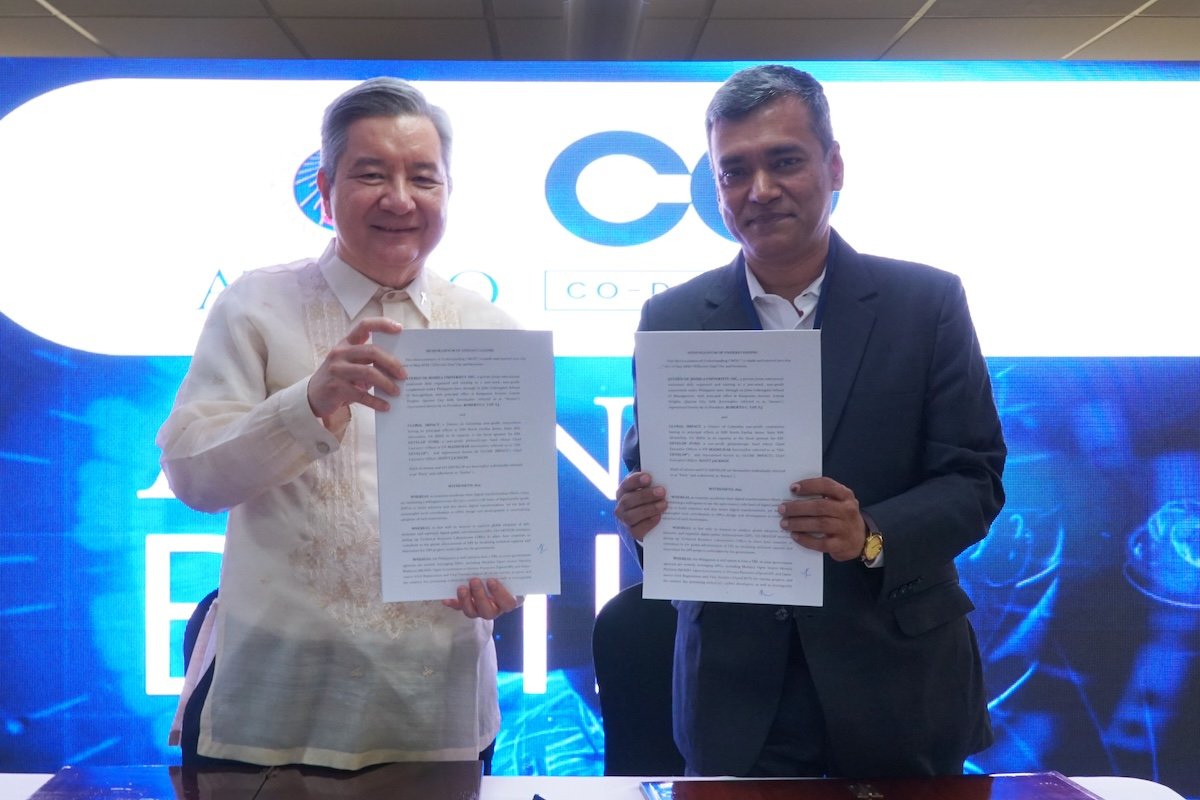
Co-Develop and Ateneo de Manila University Launch Technical Resource Lab (TRL) in Manila to Enhance Local Capacity for Digital Public Infrastructure
Ateneo de Manila University announced the launch of the Business Insights Laboratory for Development (BUILD) Centre today which, in partnership with Co-Develop, will house the Philippine Technical Resource Lab (TRL), an initiative dedicated to strengthening the digital transformation efforts of the Philippines. The TRL will play a pivotal role in the country's digital transformation journey, supported by various Digital Public Goods (DPGs) including OpenSPP, OpenG2P, Mojaloop, MOSIP, and eGov.
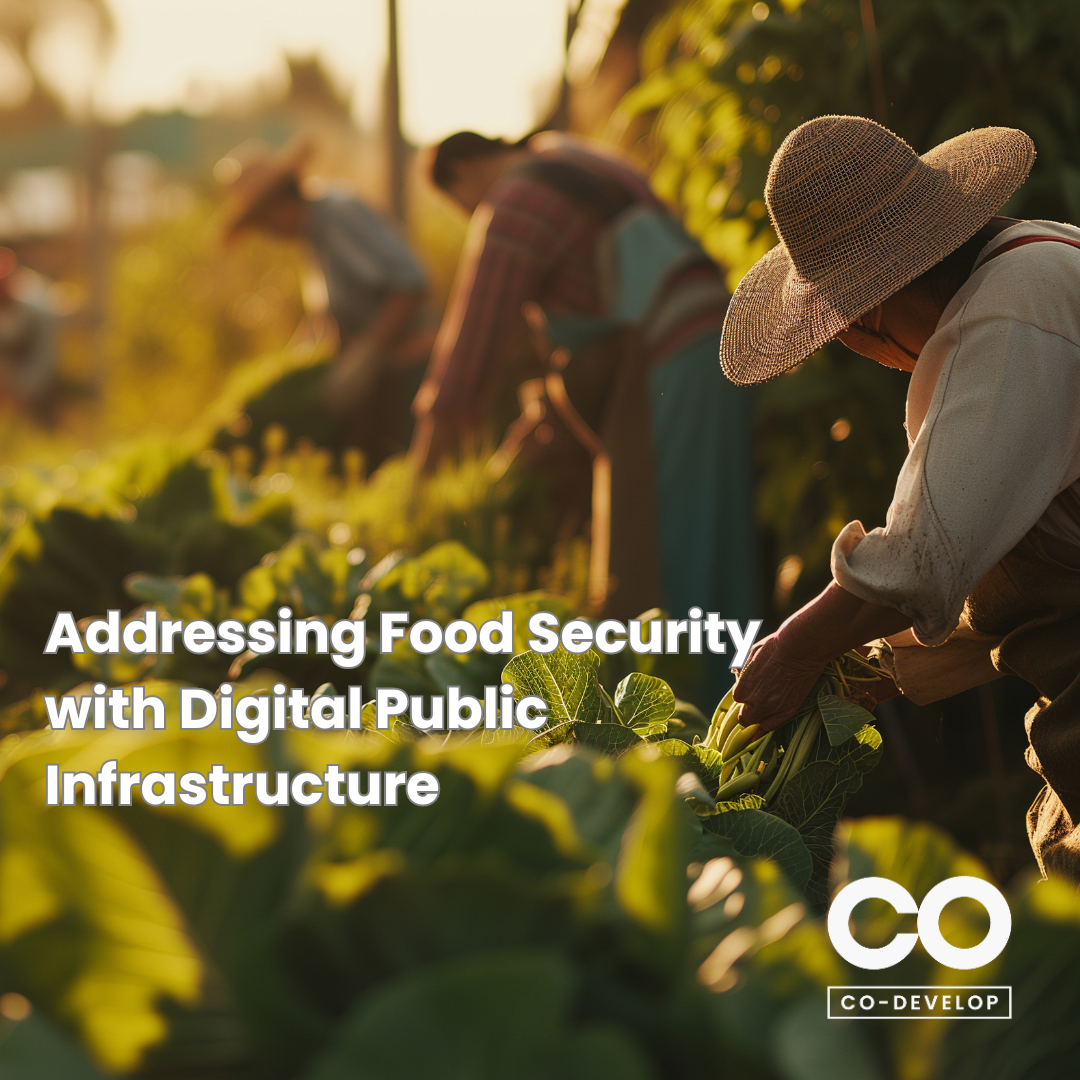
Addressing Food Security with Digital Public Infrastructure
Food security plays a pivotal role in alleviating poverty, enhancing public health, and fostering socio-economic stability. Yet in recent years, the convergence of multiple crises, including the COVID-19 pandemic, armed conflicts, and escalating climate emergencies, has significantly hindered agricultural productivity and led to a dire state of food insecurity that has been disproportionately felt among the most vulnerable populations worldwide. To effectively tackle this challenge, it is not enough to focus on immediate-term recovery efforts; rather, laying the foundations for longer-term resilience will enable countries to withstand future crises. Digital public infrastructure (DPI) - society-wide, digital capabilities that are essential to participation in society and markets as a citizen, entrepreneur, and consumer - is proving to be a powerful tool in the fight against food insecurity, now and in the future.

Building Zambia’s Digital Economy Foundations through Digital Public Infrastructure (DPI)
In recent years, Zambia has actively sought to foster digital inclusion and transform its ICT and innovation ecosystem, with the latest move being the signing of the Electronic Regulation Statutory Instrument (SI) No 43 of 2023 by H.E. President Hakainde Hichilema in October 2023. The regulation which strengthens the role of the Electronic Government Division also known as Smart Zambia Institute (SZI) is in line with the government’s vision of prioritising digital transformation by leveraging technology for the enhancement of the well-being of the citizenry through enhanced public service delivery and also making it the bedrock of Zambia’s economic progress.

Co-Develop Invests in Instituto Brasileiro de Defesa do Consumidor (IDEC) to Improve Safety & Inclusion in Digital Public Infrastructure
Co-Develop made a grant to support a prominent Brazilian consumer defense organization, Instituto Brasileiro de Defesa do Consumidor (IDEC), to conduct research and advocacy aimed at improving the safety and inclusivity of Brazil’s digital public infrastructure. Brazil has one of the most robust examples of digital public infrastructure (DPI) globally. In just a few years, DPI in Brazil has transformed how the country does business, bringing millions of people into the digital economy.
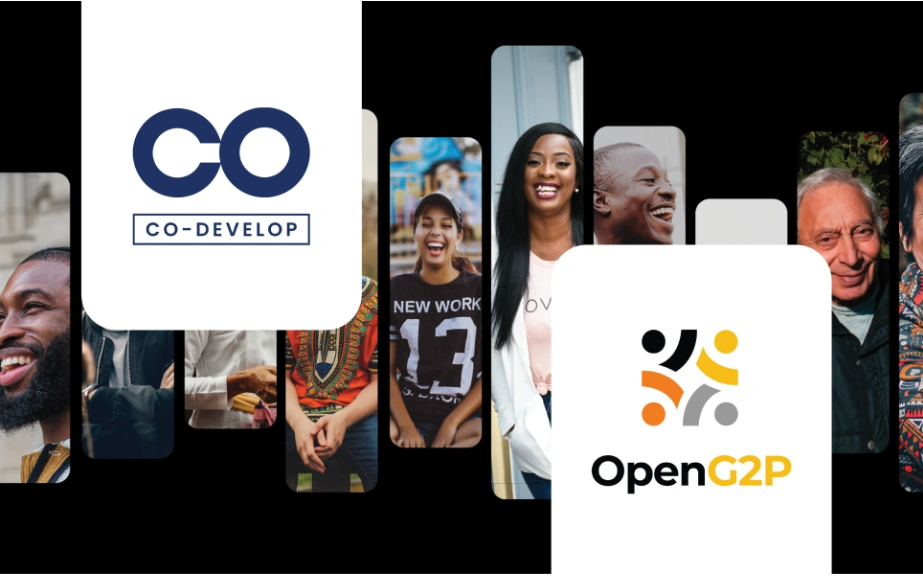
OpenG2P at IIIT-Bangalore Partners with Co-Develop to Advance Global Digital Government to Person (G2P) Solutions
OpenG2P and Co-Develop are pleased to announce a partnership to accelerate OpenG2P's mission to enable inclusive and efficient Government-to-Person (G2P) delivery systems.
OpenG2P provides an open-source platform to build solutions that streamline and enhance the performance of G2P systems; that play a crucial role in disbursing social benefits, subsidies, and other essential payments to residents, fostering economic stability and social welfare.

Launching the ‘State of DPI’ Project
We are excited to announce the launch of a digital public infrastructure (DPI) baseline research project – the ‘Global State of DPI’.
Over the past year, the conversation around DPI has dramatically expanded. Most notably, the G20’s endorsement of DPI as a critical catalyst for countries' development has brought global attention to the concept of “infrastructure thinking” for development and public service delivery. The launch of the 50-in-5 campaign demonstrated a commitment by a global coalition of partners including Co-Develop to align around a shared goal in supporting the adoption of safe and inclusive digital public infrastructure globally.

Foundations for a fairer digital future
As we learn about the digitisation journeys of various countries, and the different approaches that countries can take, it is difficult to comprehend why the idea of shared public infrastructure is difficult to comprehend. Indeed, this idea of shared public infrastructure is the bedrock on which our modern economies are built. I often say that the education department did not build its own roads for school buses, and the health department did not build its own roads for ambulances. We built roads as shared public infrastructure. Why then is this idea of shared public infrastructure not the default in the digital realm?
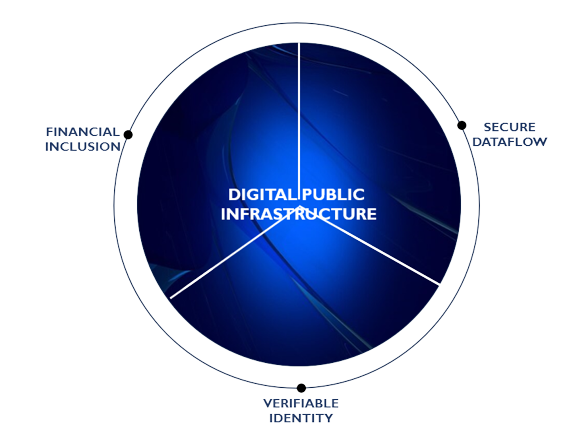
What is Digital Public Infrastructure?
At Co-Develop, we understand digital public infrastructure (DPI) to be society-wide, digital capabilities that are essential to participation in society and markets as a citizen, entrepreneur, and consumer in a digital era. Because it is essential, DPI should be guaranteed by public institutions to be 1) inclusive, 2) foundational, 3) interoperable, and 4) publicly accountable, as it is deployed in countries around the world.
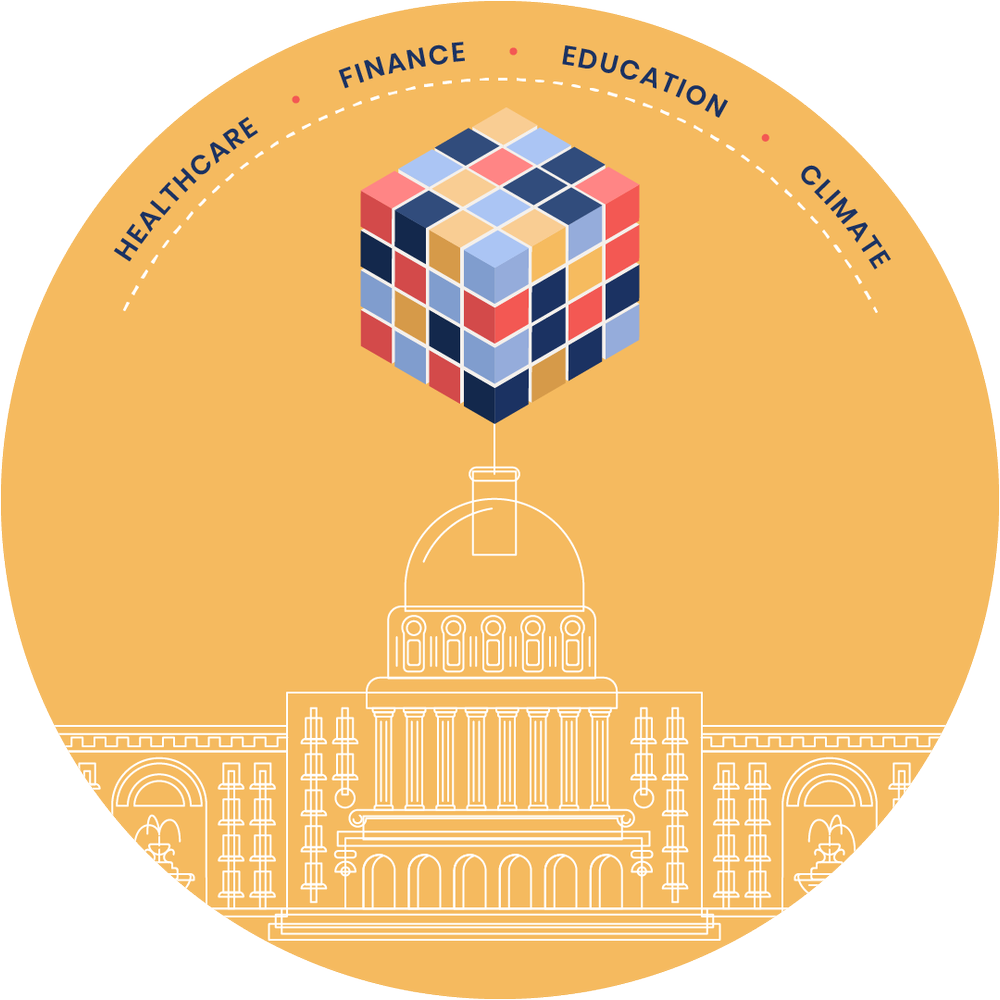
Investing in the Center for Digital Public Infrastructure: applying infrastructure thinking to governments’ top priorities
In March 2023, Co-Develop approved an investment to set up the Center for Digital Public Infrastructure (CDPI), housed at the International Institute of Information Technology, Bangalore (IIIT-B). CDPI supports governments to imagine, design, architect, and implement DPI, while helping disseminate “infrastructure thinking” worldwide.

Explaining Co-Develop’s Understanding of Digital Public Infrastructure
Co-Develop recently released a framework for how we understand digital public infrastructure (DPI). As with all of our work, we welcome your comments and feedback as we co-create this work alongside a dynamic ecosystem of partners.

Addressing Climate Change with Digital Public Infrastructure
Climate change is one of the most urgent and complex challenges facing humanity today. All countries will need to engage to respond to the climate threat over the coming century with a focus on climate change adaptation (helping human populations and biomes cope with the effects of climate change), climate change mitigation (reducing carbon emissions), and the cross-cutting challenges around transparency and access to finance for these activities. Solutions to these climate challenges require innovation on a global scale.

Fixing demand and supply side issues of DPGs
Digital Public Goods can accelerate the attainment of the Sustainable Development Goals. However, many gaps in the ecosystem need to be fixed before this vision translates into reality.

